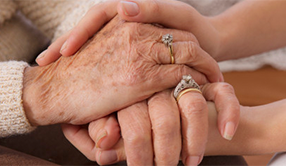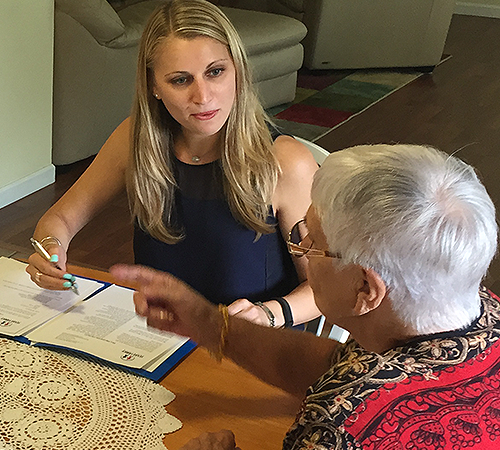
Money Management and the Aging Brain
September 22, 2015 – by Tobie Stanger • consumerreports.org

We’re all apt to get a bit fuzzier at money math as we age. The decline of financial skills—counting money, understanding debt and loans, paying bills, having the judgment to make prudent financial decisions—may be an early marker of something more: mild cognitive impairment due to Alzheimer’s disease.
In normal aging, cognitive abilities involving speed—learning new material, recalling facts, shifting attention—slow down, notes Bennett Blum, a forensic and geriatric psychiatrist in Tucson, Ariz. Other abilities, associated with language and reasoning, improve. How an individual is affected depends on genetics, health, environment, physical activity, and other factors. And the decline may not be noticed for years if a senior functions well otherwise. “Someone who’s not with the elder often won’t even recognize it or might chalk it up to eccentricity,” he says.
Only when a senior gets gulled into an unnecessary reverse mortgage or makes a bad investment decision—say, buying “gold” coins of questionable value—does the change make itself known. Stressful situations—often imposed by pushy telemarketers and outright scammers—also can highlight the impairment.
Declining cognition and dementia are blamed for seniors’ susceptibility to scams, but those with intact cognition also can get snookered, possibly because of other pressures that make them more vulnerable. Loss of a relative, family discord, financial worries, or an overdependence on another person—all can contribute, says Susan Bernatz, a forensic neuropsychologist in Marina Del Rey, Calif. “I’ve seen many cases involving people with full mental capacity whose trust and dependency were exploited for another person’s financial gain,” she says.
Notably, cognitive decline affects financial decision-making differently among personality types. A study published in 2014 by researchers from DePaul University and Rush University Medical Center found that seniors who have an overinflated faith in their financial abilities could be more vulnerable than others to money scams. As their cognition wanes, the risk increases. What’s more, the report said, getting stung once might not be enough to keep some overconfident types from being defrauded again.
Read the article here:
http://www.consumerreports.org/cro/consumer-protection/money-management-and-the-aging-brain





Follow Us!